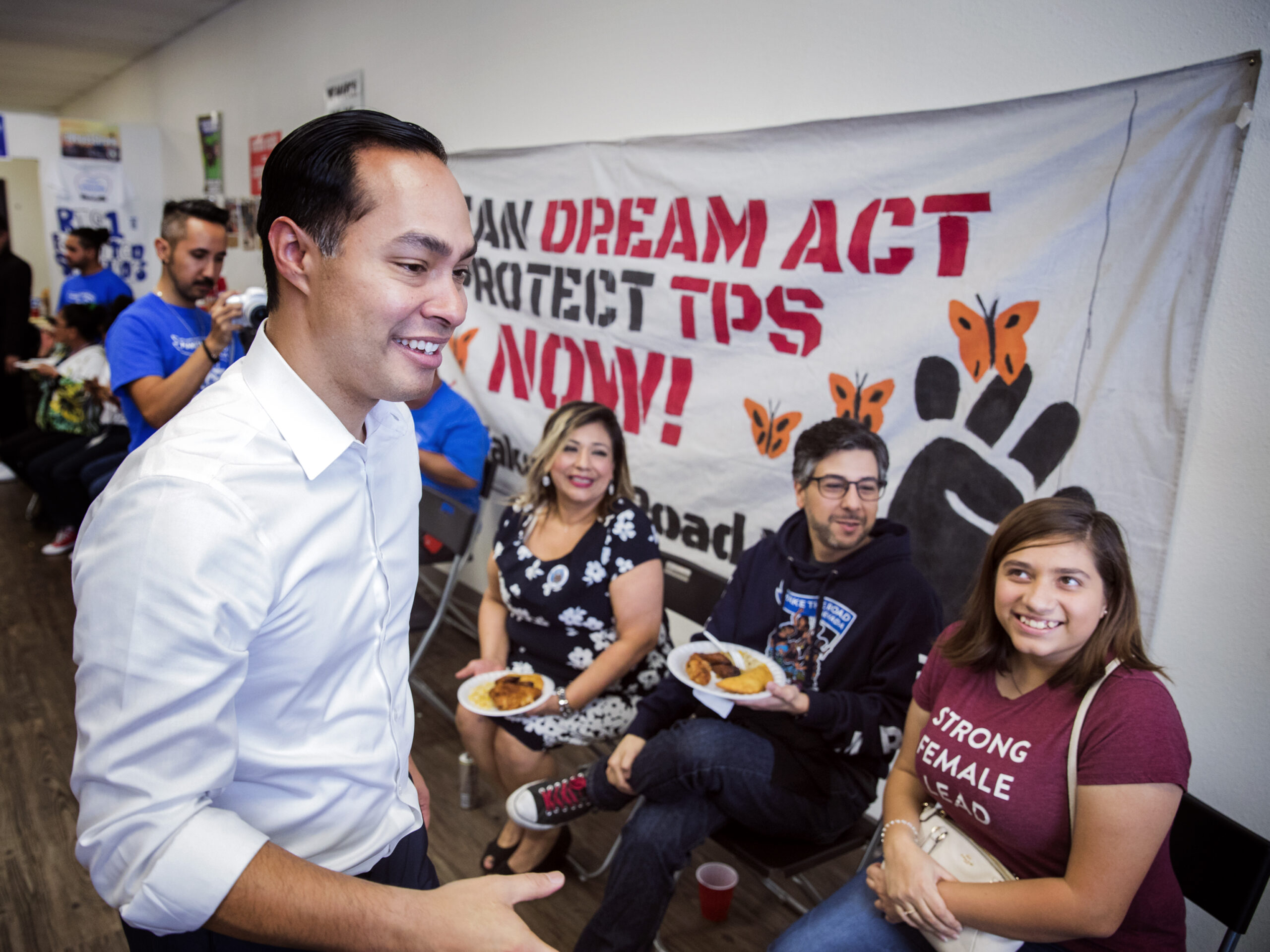A Texas judge’s decision to temporarily block a Biden administration program that offered a lifeline to legal residency for hundreds of thousands of undocumented spouses didn’t exactly come as a surprise to Latino advocates in Nevada.
Instead, many of the attendees at an event hosted by the immigrant advocacy group Make the Road Nevada in Las Vegas last week said the ruling blocking the administration’s “parole in place” program was just the latest evidence that lasting immigration policy change would need to come from Congress and not executive action.
“The best way to get immigration reform done is through Congress,” said former Secretary of Housing and Urban Development Julian Castro, who spoke at the event. “We have another opportunity in November for people to make their voices heard and let politicians know that immigration reform is important to them and to keep pushing them once they’re in office.”
Parole in place grants deportation protections for undocumented spouses and stepchildren of U.S. citizens and a potential pathway to citizenship.
To qualify, applicants must have been married to a U.S. citizen prior to June 17, when the program was first announced. They must also not have a disqualifying criminal history (including all felonies and a number of other crimes, such as domestic violence and most drug offenses) and be able to prove they have lived continuously in the United States for at least 10 years. The federal government estimates that these noncitizens have resided in the U.S. for 23 years on average.
Parole in place promised to provide a lifeline for some members of Nevada’s undocumented community. According to an estimate by pro-immigration group FWD.us, 10,000 undocumented spouses in Nevada would be eligible for the program.
The federal judge’s ruling stemmed from a lawsuit filed by 16 Republican-led states challenging the Biden administration regarding the constitutionality of the program, charging that it bypassed Congress to create a pathway to citizenship for partisan purposes.
The judge called the claims “substantial” and ordered a 14-day pause on the program approving new applications, though experts believe the pause could be extended. Immigrant families have already filed a countersuit.
Erica Marquez, a Deferred Action for Childhood Arrivals (DACA) recipient and organizer with Make the Road Nevada, called the executive order creating the program “a breath of fresh air.” While the court-ordered pause was disappointing, she is encouraging people to continue to apply and to seek different pathways toward legal residency.
“I feel like the executive order could definitely be beneficial,” she said. “I feel like it’s kind of like a Lego system. You just have to have the right pieces to put them in the right place.”
Part of the problem is that any immigration policy changes being done through executive actions are much easier to block, Castro said in an interview with The Nevada Independent. As Congress has become increasingly unwilling to take up immigration bills, President Joe Biden and former President Donald Trump have come to rely on executive actions that can be quickly blocked by a court or overturned by the next administration.
Immigration is again one of the top issues for voters this election. Trump has pledged to deport millions of people not legally in the country, while his campaign has made Vice President Kamala Harris’ role in investigating border crossings a focal point of his attacks by labeling her as the administration’s “border czar” and blaming her for a surge in border crossings.
Harris, who has pushed to pass a U.S. Senate bill that would stop processing asylum claims if migrant encounters reached a certain threshold, said she’ll take a “pragmatic” approach on immigration if elected.
A recent poll from the media firm Entravision shows 44 percent of Nevada Latinos (a plurality) believe that Trump would “bring safety to our border and solve the immigration crisis.”
Yet despite recent setbacks, Marquez remains hopeful that positive immigration reform will come for undocumented people.
“We’re not gonna quit. We’re not gonna go anywhere. Nothing is going to change anytime soon for us to go ahead and quit and put our hands down,” she said.

